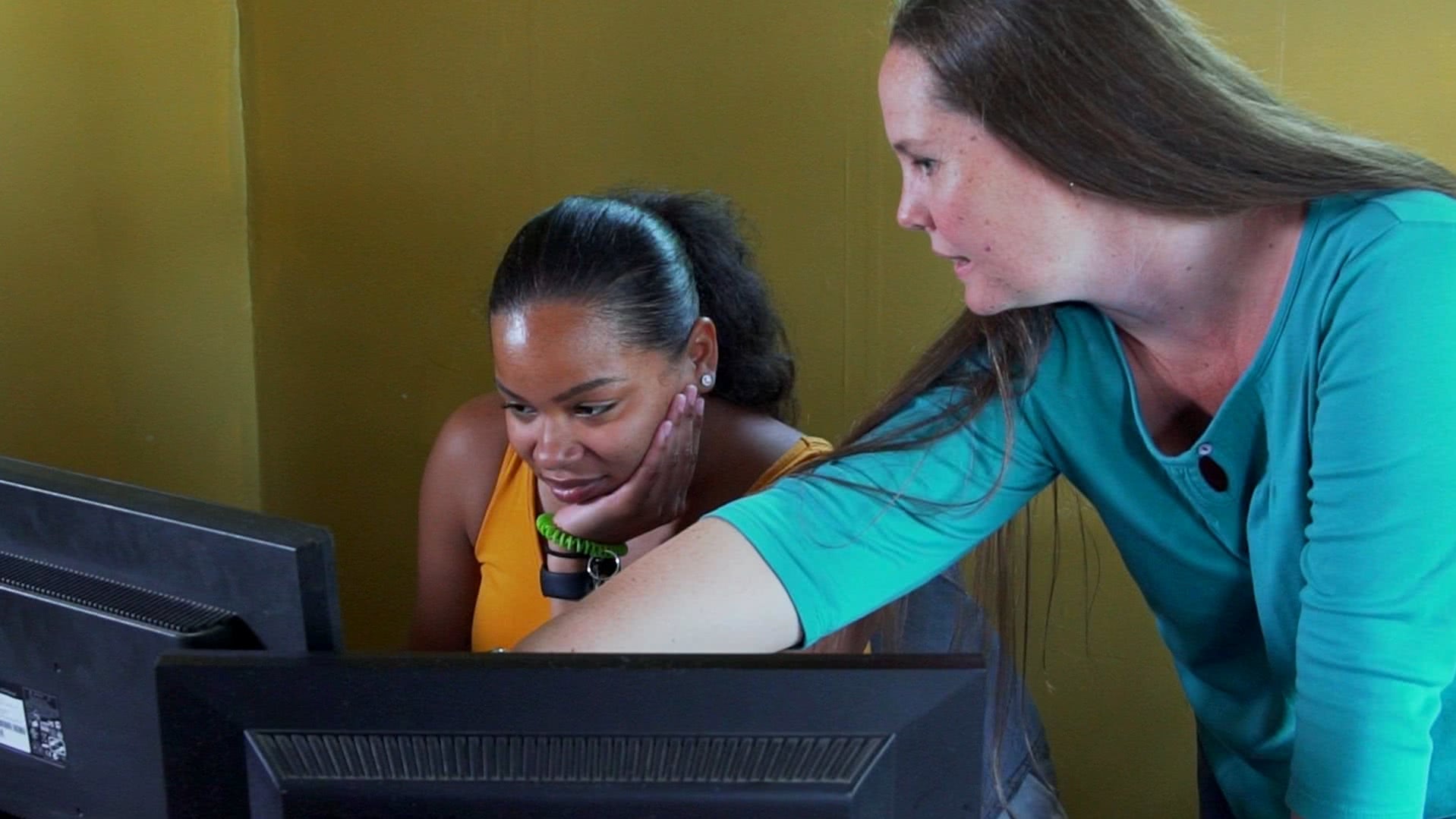This article is part of a series in which a National Funding customer shares their insights on finding a loan specialist, giving back to the community and expanding one’s business.
If you want to build strong relationships with your customers, become known as one of the businesses giving back to the community.
Dan and Cheryl Dailey, co-owners of the Cleveland-based commercial construction company Master Handyman, LLC, have done just that, by successfully combining their passion project with their regular business.
Master Handyman helps support their side business, Fleet Properties, with money and manpower. By taking out a small business loan this year, they were able to grow their core business, boosting profits they could invest into real estate renovation and rental.
In 2013, the couple started purchasing and renovating vacant houses in a blue-collar neighborhood near downtown called Slavic Village. Cheryl and Dan’s work sparked renewed interest in the area, bringing people together to make life better for residents. Since Cheryl and Dan started their renovations, others have joined them in their mission.
“The government came in with projects to improve the area,” says Cheryl. “Small businesses are moving here. Artists came in and opened a gallery. A lot of people here have the same goal: making this community a better, safer place to be. It’s nice to be part of a movement because we don’t feel the stress we would if we were single-handedly trying to change a neighborhood.”
Cheryl, who grew up in California, is also living out a personal lifelong dream. “When I was a little girl I always wanted to live in an old house and fix it up, but where I grew up the oldest house was built in the 60s,” she says. “Taking a house that’s dilapidated, bringing out its charm and getting people back living in them instead of having them torn down and forgotten is a big source of pride for me.”
Fulfilling a Community Need, Years in the Making
For Dan and Cheryl, giving back to their community was a natural choice. From 2000 to 2008, their county recorded the most foreclosures per capita in the country, according to NPR. Ten years later, the area is still digging out. The couple couldn’t sit idle, watching blight forever change the neighborhoods they love.
Dan and Cheryl have since renovated nine properties, which they rent when finished. Currently, they have 11 units that are home to 11 families.
“We’re keeping the house on the tax rolls, which betters the city with more money for schools, streets, police and fire department[s],” says Cheryl. “It’s another family in the community instead of a house heading to be torn down to become a vacant lot.”
When they’re out working in the community, residents take notice.
“As we’re fixing up a home, people who live on the street come out to see what we’re doing,” says Cheryl. “When people are talking to each other, it builds community. They often start cleaning up their own houses. Property values increase, and the street becomes a nicer place.”

Cheryl Dailey (right) with an employee
Community Involvement Is Good for the Soul — and for Business
Small business community involvement like the work being done by Dan and Cheryl doesn’t just feel rewarding — it’s good for business. Master Handyman experiences a windfall of goodwill as people take notice of Fleet Properties and Cheryl and Dan’s work. Their work in the community reflects positively back on to Master Handyman, transforming the LLC not simply into a successful small business, but a proud representative of the local, Cleveland community.
It also doesn’t hurt that businesses giving back to the community have happier employees and greater employee retention, according to Fortune. Small business community involvement also helps attract customers; 85 percent of consumers said they would support a purpose-driven company in their community, according to the latest Cone/Porter Novelli Purpose Study.
The community also gets to see Master Handyman’s staff at work. The couple uses four of their commercial repair workers to perform some of the rental renovations.
“My guys know how to do residential work, and I can transition them from doing a commercial job in [the] morning to working on a property in [the] afternoon,” says Cheryl. “I’m always buying materials and know where to find the parts we need to do rehab projects. And I know how to do the paperwork. They’re separate businesses, but they’re almost the same, complementing each other.”
Whether you donate your time, money or services, giving back to the community will let you get to know residents on a more personal level and put a face to your business name. Plus, you’ll get to see the results of your work firsthand, bettering the lives of people in your own area. So there you have it — a win-win. Your community will thank you, and so will your bottom line.
You can learn more about Cheryl and Master Handyman’s story through our video feature, and through our articles describing how the company expanded into new markets and found a lender that fit their needs.









